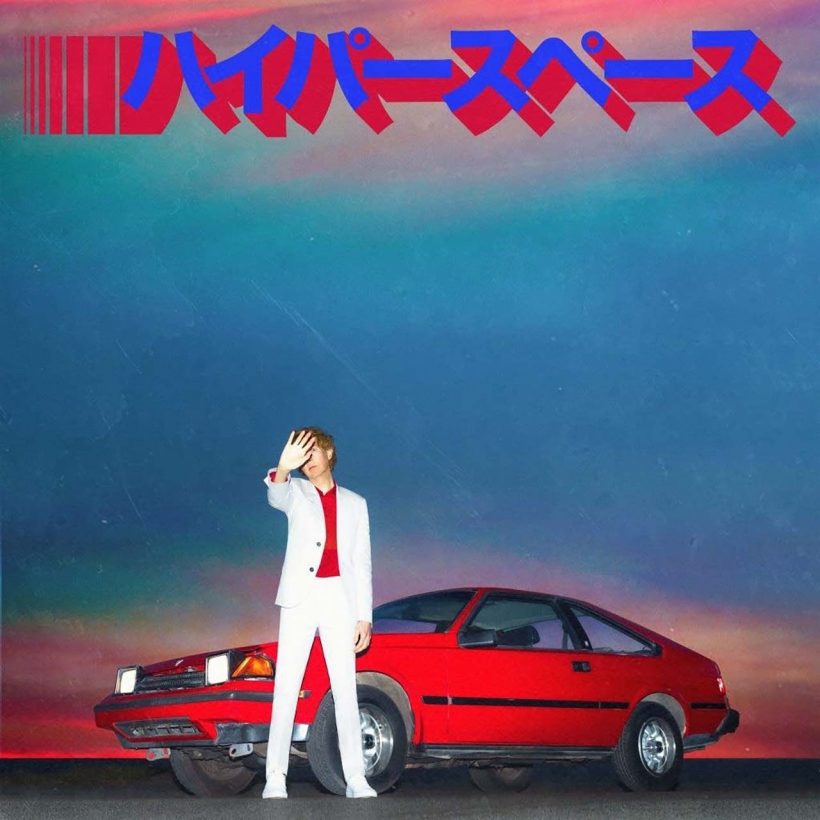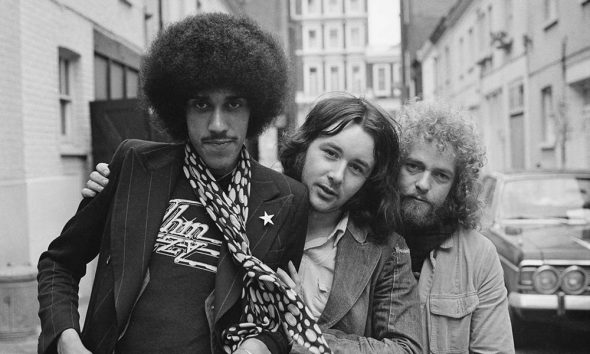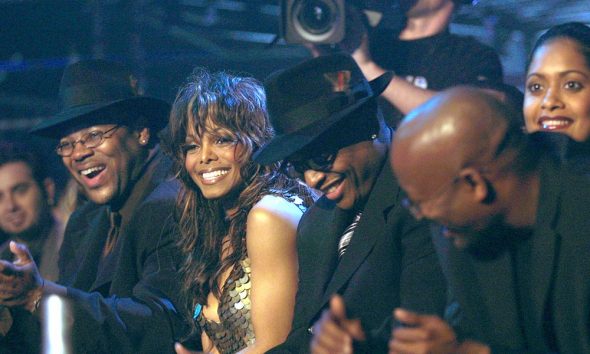‘Hyperspace’: Beck Takes To The Stratosphere With Pharrell Williams
Looking for solace in troubled times, Beck’s ‘Hyperspace’ album finds him channelling personal despair into something universal.

Twenty years after first wanting to work with Pharrell Williams, Beck finally gets his wish. The mind boggles at the thought of what the pair might have made together at the turn of the millennium: Pharrell, his fingerprints over almost every hit song of the era; Beck, deconstructing the very notion of how songs were meant to be written… Put that together and who knows where 21st-century pop may have gone? Now, however, with both of these guys approaching 50, and another new decade dawning, their music – and music in general – is in a very different place.
But is the rest of the world? Call it Y2K fever, pre-millennium tension, or, party over, oops, out of time, but a similar dread that pervaded the coming of the year 2000 permeates the current cultural climate. Does Pharrell have a “Happy” to distract us? Is Beck mixing business with leather on escapist party jams? No. Hyperspace is, in Beck’s telling, an album about “finding peace in the moment” – and, with its sparse electro arrangements and lyrics in search of relief from troubled times, it is an album resolutely of the moment.
Listen to Hyperspace on Apple Music and Spotify.
Reaching for something new
If the six-year hiatus between Modern Guilt and Morning Phase found Beck returning with a work that both fans and newcomers could easily place, and 2017’s Colors was evidence of him looking for his own place within the modern pop landscape, Hyperspace sees him reaching for something entirely new. The album’s biggest surprise is not “Saw Lightning” – a slice of junkyard hip-hop-blues the likes of which we’d expect from the man who saw nothing wrong with rapping over a country lick two decades before “Old Town Road” – but the fact that, for two such identifiable musicians as Beck and Pharrell Williams, stretches of the record seem like the work of neither.
That’s a good thing. The danger of having two such unique artists work together is that they end up canceling each other out, as opposed to taking each other into unchartered territory. On Hyperspace, however, Pharrell and Beck work in perfect synthesis. In short, it’s as if Morning Phase and Colors found a middle ground: flawless songcraft meets electronic pop, both leading each other away from their comfort zones.
A consummately crafted work
Beck has described Hyperspace’s recording process as: “Everything’s on and inspiration strikes and then everything happens completely fast, and there’s not a lot of second-guessing.” But Hyperspace is a consummately crafted work, with three distinct movements: crisis (“Uneventful Days”: “Living in the dark, waiting for the light/Caught up in these never-ending battle lines/Everything is changed, nothing here feels right”), followed by dark nights of the soul (“Dark Places”: “It’s two in the morning/I’m lost in the moment… Been so lonely/So unholy”); and the emotional release of the final act (“Everlasting Nothing”: “I washed up on the shoreline/everyone was waiting there for me… In your time, you’ll find something”). While that track’s merging of electronica and gospel ends the album on notes of both release and revelation, with a choir on hand to take Hyperspace’s closing moments into celestial realms, the album’s overall vibe is closer to the lovelorn mode of Sea Change, tinged with the existential paranoia of Beck’s 2006 opus, The Information.
Capturing the zeitgeist
If Hyperspace’s title track deals with the unremitting barrage of stuff that is life in the 21st Century (“Losing form, it’s all resonating/No we can’t articulate it/Infrastructure all outdated/This could be a simulation”), a song the likes of “See Through” explores how difficult it can be to make empathetic connections in a world where most communication is done from behind a screen. “Coming out of my life, you know I’m trying to reach you,” Beck sings atop bubbling synths, as if life is newly coming into focus around him. But as the music drops out, his bare voice offers just one phrase: “I feel so ugly when you see through me.” It’s a desolate, haunting moment, as if exposing the real human underneath the virtual shield is too painful to bear.
If this sounds like a downer, don’t worry. While the album’s lyrics are full of doubt and uncertainty, they’re anchored by music that is assured – at times buoyant – and compelling. Though the arrangements are more stripped back than those on Colors, the mix is sumptuous, spacious, comforting, and compelling – Hyperspace all but invites you to sink into it and let your mind wander through the aural world it creates.
During that six-year silence, Beck’s absence was too keenly felt. Without releasing albums of his own, he filled his time producing great works for others – Charlotte Gainsbourg, Thurston Moore, and Stephen Malkmus among them – but what the world really needed was Beck to return to his own visions. Hyperspace is why. Whether taking postmodernity to its furthest extremes (Odelay, Midnite Vultures), or making sense of an increasingly fractured cultural landscape (The Information), Beck consistently captures the zeitgeist. Hyperspace may have been born of personal despair, but Beck has channeled that into something universal. Whatever fears you have in these uncertain times, this is an album that offers both an escape from – and a way of understanding – them.












